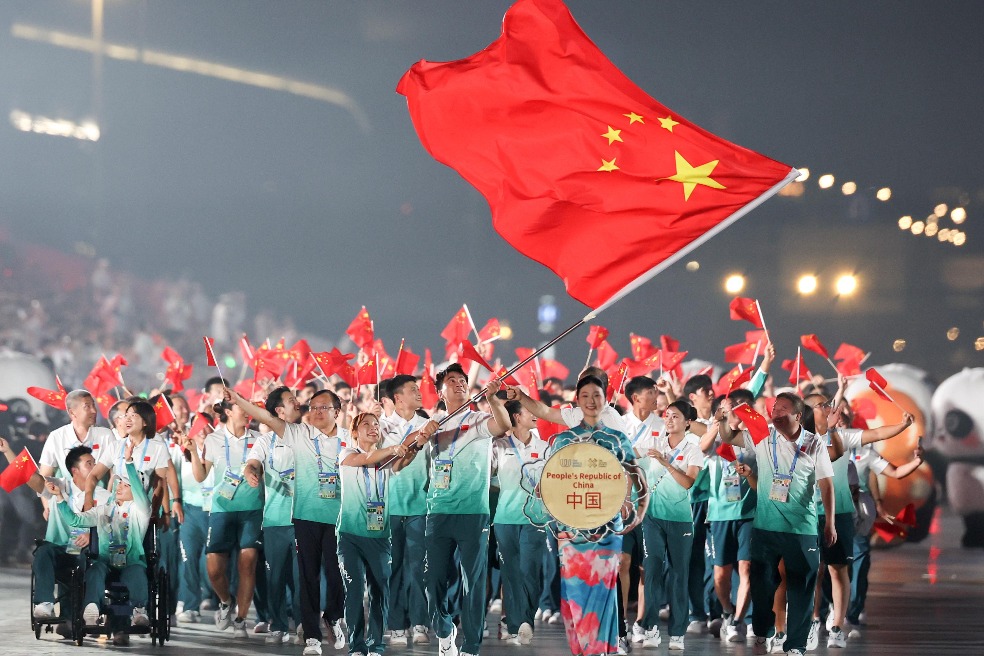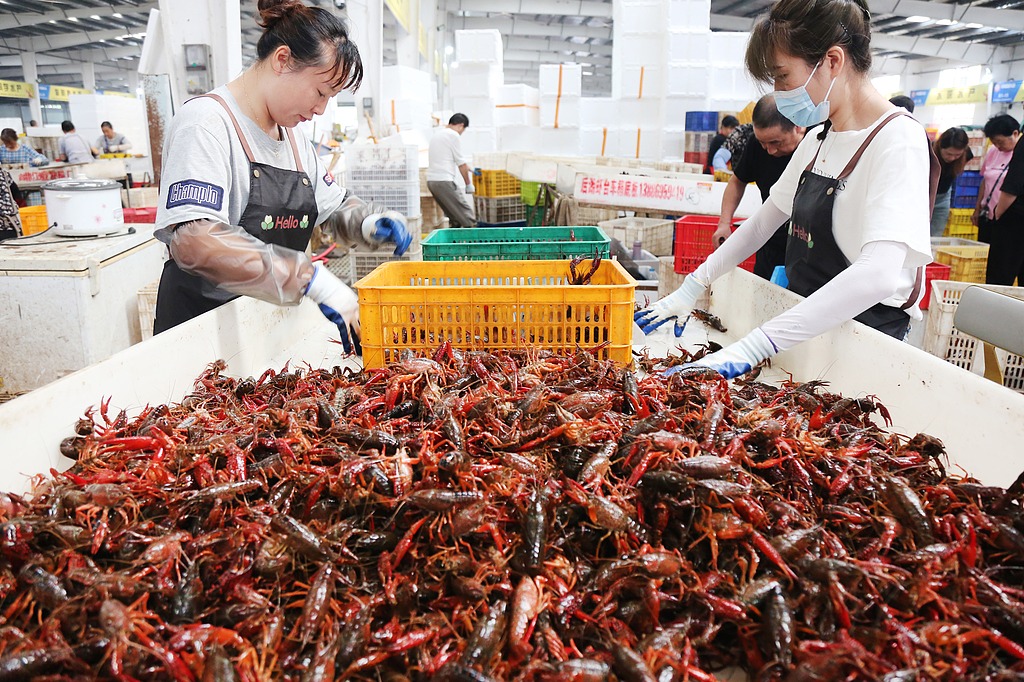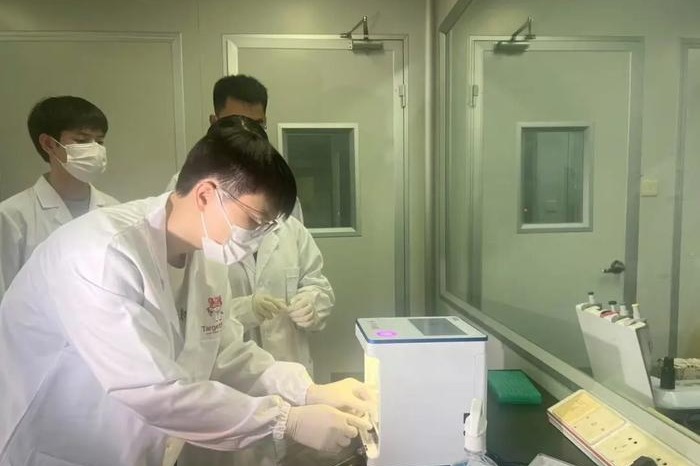Banks offer series of loans to boost growth
China's State-owned lenders helping finance work recovery of micro and small enterprises from the COVID-19 epidemic

Commercial banks have been ramping up support for small businesses to ensure stable employment and the development of market entities as China takes strong measures to fight COVID-19 and spur economic growth.
The Zhejiang provincial branch of Agricultural Bank of China Ltd, a large State-owned commercial lender, increased the amount of "inclusive loans"-loans to micro and small businesses with a total credit line of up to 10 million yuan ($1.45 million) per borrower-by 70 billion yuan during the first six months.
Apart from increasing inclusive loans, large State-owned commercial banks also significantly cut lending rates for small businesses after these banks were required to strengthen support for small businesses.
Before large banks began reaching out to these clients, city and rural commercial banks offered small business loans at average annual rates of more than 8 percent. By the end of June, however, the weighted average interest rate of one-year loans issued by Agricultural Bank of China's Zhejiang branch to incorporated small businesses was around 4 percent, lower than the average lending rate of the overall banking sector, said Hu Yongzhong, general manager of the inclusive finance department at the branch.
ABC launched internal policies in support of inclusive finance-banking products and financial services made available to small businesses, Hu said.
"We also tightened control over risks as a way to ensure the sustainable development of inclusive finance," he said.
By the end of June, the bank's Zhejiang branch recorded a nonperforming inclusive loan ratio of 0.21 percent, down 0.13 percentage point from the beginning of the year.
The branch redesigned its inclusive loan approval process, innovated relevant products and transitioned from offline to online lending.
"We have access to data provided by more than 30 provincial government departments, including information on a company's tax payments, customs, lawsuits and registration with the administration for industry and commerce. This can help us filter clients by identifying those that do not run their businesses smoothly or face higher risks. We also use the tax data as a reference to make decisions on credit lines we should grant to businesses," Hu said.
The effects of big data on small businesses at the Zhejiang branch are significant. Both the number of its clients receiving inclusive loans and the outstanding balance of loans have doubled every year since 2018. More than 90 percent of the growth was contributed by big data-based online products.
The branch offered a one-year working capital loan to furniture maker Hangzhou Xinnan Rattan and Bamboo Works Co Ltd at a rate of 3.8 percent this year. Currently, the company's outstanding balance of loans from the branch is 5 million yuan.
Operating as a self-managed export business since 1988, the company exports more than 90 percent of its products to over 40 countries and regions. The US accounted for about 30 percent of sales revenue followed by Europe (20 percent) and Australia (15 percent).
Its exports to several markets shrank this year due to the COVID-19 outbreak.
The company sent six employees to attend the 45th China International Furniture Fair (Guangzhou)2020 in July. Due to the pandemic, most buyers at the fair were from China.
"We are thinking about adjusting our business by putting more emphasis on the domestic market," said Zhu Lingqiang, general manager of the company.
Unlike the firm's international clients, many of whom are furniture retailers doing business online and offline, most domestic clients are small restaurant owners who place orders for a few custom-made chairs.
"It means we have to change our mode of production… and we must consider developing a series of products targeting the domestic market," Zhu said.
He plans to lease land of at least 10,000 square meters to build another plant when the pandemic ends in hopes of doubling the company's production capacity.
Hangzhou Mufan Textile Co Ltd, a mattress fabric and home textile fabric supplier, will also shift its focus to the domestic market.
Last year, Thailand, a major importer of the company's products, constituted nearly half of its sales volume of more than 20 million yuan, as many tourists visiting the Southeast Asian country returned home with the company's products.
The novel coronavirus outbreak has struck a heavy blow to Thailand's tourism sector and relevant market entities. Shen Jianhua, general manager of Mufan Textile, said he estimated that the sales volume of the company will drop to 12 to 15 million yuan this year.
"I don't expect to make a profit this year. All I want for my company is to survive," Shen said.
Before the pandemic, he planned a business expansion and bought four textile-making machines at over 400,000 yuan a piece. Fabrics woven by the new equipment will be finer, smoother and more competitive in the market.
Since the pandemic broke out, Shen has adjusted his plan and is preparing to target middle-to-higher income customers in the domestic market.
"If the pandemic abates at the beginning of next year, I will buy another four pieces of textile equipment, rent more space for production and hire more workers. Then I will apply for a loan to meet my needs of funding between 1 million yuan and 2 million yuan," he said.
The company has been granted a collateral-free credit line of 1 million yuan by Bank of Taizhou Co Ltd, a city commercial lender and a leading provider of small business financing services. When Shen started his business in 2016, the bank offered him a one-year working capital loan of 300,000 yuan, with his brother-in-law serving as the guarantor.
In recent years, Bank of Taizhou pushed ahead to establish roots in villages and rural areas. It has also been active in major industries in different regions to improve customer recruitment, enhance customer support and respond to customer needs more quickly, said Xu Haijun, vice-president of the bank's branch in Hangzhou, Zhejiang province.
By Aug 1, the number of licensed small business and individually-owned business clients exceeded 16,000 at Bank of Taizhou's Hangzhou branch, accounting for 78 percent of its total number of clients. Its average outstanding balance of loans provided to the above-mentioned clients was 493,300 yuan per borrower.
About 60 percent of Bank of Taizhou's new clients are first-time borrowers that have never taken out bank loans before. At its Hangzhou branch, the volume of loans for terms of more than one year accounted for 37.5 percent of the total, and the volume of collateralfree loans accounted for 38.5 percent of the total.
"From March to July, our staff visited 27,000 corporate clients and individually owned business clients that have deposits or loans at our branch to learn their business conditions, the impact of COVID-19 on their businesses and their needs and suggestions. We reassessed these clients based on the investigations and kept supporting the businesses that were running normally but were facing temporary difficulties due to the pandemic," Xu said.
Bank of Taizhou took measures to effectively cut operating costs and reduce risk with the help of big data. It used data provided by Qichacha, a platform delivering business data and analytics on China-based companies, to facilitate client screening.
"Small clients do not necessarily mean high risks. Whether the risk is high depends on our risk control technologies, risk management capacity and knowledge of our clients," Xu said.
As of Aug 1, the NPL ratio of the bank's Hangzhou branch was 0.98 percent, well below the NPL ratio of 1.94 percent for China's banking sector as a whole at the end of the second quarter.
Ma Zhenhuan in Hangzhou contributed to this story.




Today's Top News
- Chengdu World Games concludes amid wide acclaim
- Trump, Putin say talks 'constructive'
- China, India to?start new round?of consultations
- Healthy China-India relations good for regional development and stability
- China achieves best performance at The World Games in Chengdu
- Books of Xi's discourses on adhering to deepening reform comprehensively published






























